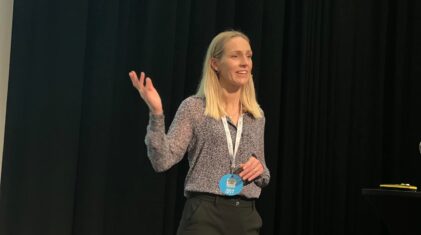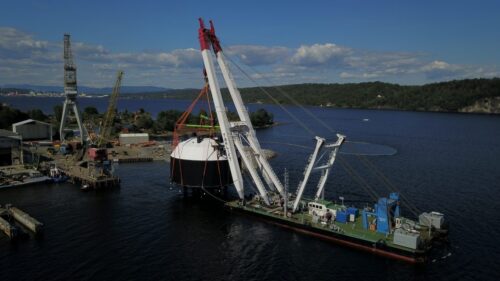Grieg Seafood’s NOK 750-million ($75.2 million) offshore farming project is the latest casualty of Norway’s proposed new tax.
The salmon producer on Tuesday said the risk and costs of the “Blue Farm” project have heightened because of the potential new tax, thus it is putting it on hold.
Offshore technology is borrowed from the petroleum industry; Grieg Seafood’s plan was to develop the technology further and parlay it toward sustainable fish farming in Rogaland.
The company was awarded 4.5 development concessions by Norway’s Directorate of Fisheries for the project last year.
Risky
“Sustainable aquaculture at sea offers great opportunities for Rogaland and Norway. With Blue Farm, we have wanted to help develop the industry in this direction, but it will require a lot of capital and has a very high risk. The development concessions have provided important risk relief for carrying out this type of uncertain project. With the ground rent proposal, the development concessions will be less valuable, and we will also have less capital left in the company for investment and development. Therefore, Blu Farm is now unfortunately put on ice,” said Nina Willumsen Grieg, regional director of Grieg Seafood Rogaland, in a statement.

The project has so far been in the planning phase. There has been an estimated construction time of approximately two years after the planning has been completed.
“There are many challenges to solve in the aquaculture industry and the development concessions have meant that many new innovations in open, semi-closed, closed and offshore farming technology could be tested. If the current proposal for ground rent tax remains in place, unfortunately many of these projects will not be carried out. It’s a shame for everyone who wants sustainable development in the aquaculture industry,” said Willumsen Grieg.
Other innovations also put on hold
Grieg Seafood Rogaland was ready this autumn to start developing closed aquaculture technology at sea. Together with FishGLOBE, the company was to develop a large food fish version of the closed FishGLOBE facility, which currently produces post-smolt. The project was put on hold in October as development concessions were also the basis for the investment here.
Willumsen Grieg is clear that even though the industry pays more than ordinary companies in taxes and fees today, the industry is willing to contribute more.
“We understand that these are challenging times in Europe and in Norway, and we must contribute more and pay more in tax than today. But it should happen in a way that does not compromise investments, activity in the rural areas and Norway’s position and potential as a world-leading producer of food from the sea. Business and politicians should work together to find a solution that takes care of these considerations better than the current proposal,” she emphasized.
In the last 10 years, Grieg Seafood has reinvested three times as much as the company has paid out in dividends, because it sees great opportunities for development in communities where it operates.

